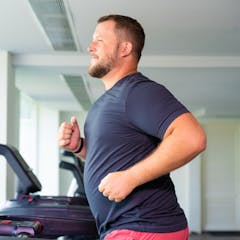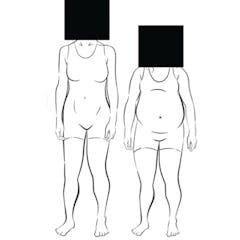
Articles on Dieting
Displaying 1 - 20 of 78 articles

Researchers gave people in the study 5, 10 or 15ml doses of apple cider vinegar and found they lost more weight than those taking a placebo. But the findings need a closer look.

Adopting healthy behaviors and thought patterns around food and nutrition takes time and intentional effort. But it will lead to more lasting change and positive outcomes than quick-fix dieting will.

The demand for off-label weight loss drugs like Ozempic is concerning, because of the impact on weight stigma and the health risks of unsupervised weight loss, including developing eating disorders.

Slow, gradual weight loss is more advantageous for your health in the long run.

When we change our diet, we disrupt our appetite hormones. Here’s how it works – and how small changes to our diet can help us feel fuller for longer.

Research shows that focusing strictly on weight loss is not only ineffective in the long term, it can even be harmful and counterproductive.

Ads for targeted fat loss, especially
for belly fat, are everywhere on social media. But is there any evidence to support this type of ‘spot reduction’?

Like most weight-loss programs, the OMAD diet makes bold promises – and comes with risks.

Thinking about food all day, feeling guilty when you eat, not knowing when you’re actually hungry: these could be signs you need to work on your relationship with food.

The BMI does not distinguish between excess body fat, bone mass or musculature. It also does not interpret the distribution of fat, which is a predictor of health.

Evidence suggests late-night eating can be bad for our health.

Many processed foods strip carbs of their natural fibers. Eating foods with an ideal total carbohydrate-to-fiber ratio can help with weight management and improve overall health.

It’s important to establish regular and adequate eating so your body and brain are well-fuelled and you can make sensible decisions around the food you consume.

Participants in both groups lost, on average, 4% of their bodyweight over a year.

The Paleo Diet is popular, but research has yet to substantiate its purported health benefits. As evolutionary anthropologists, here’s why we think it’s time to leave the Paleo Diet in the past.

Healthy eating campaigns tend to put forward images of nutritious foods. But science shows there is a more effective and counterintuitive way of steering people away from junk food.

Does intermittent fasting have a negative or positive effect on athletic performance? At the moment, the scientific data about this is contradictory.

Ozempic uses semaglutide to mimic the role of a hormone naturally produced by the body to create feelings of fullness. Certain foods can do the same thing.

If you’ve lost weight and then put it back on, it’s not because of a lack of willpower.

While excess weight arises from a complex interplay of genes, environment, diet and activity, new research finds Americans hold parents responsible for excess weight in their kids.
